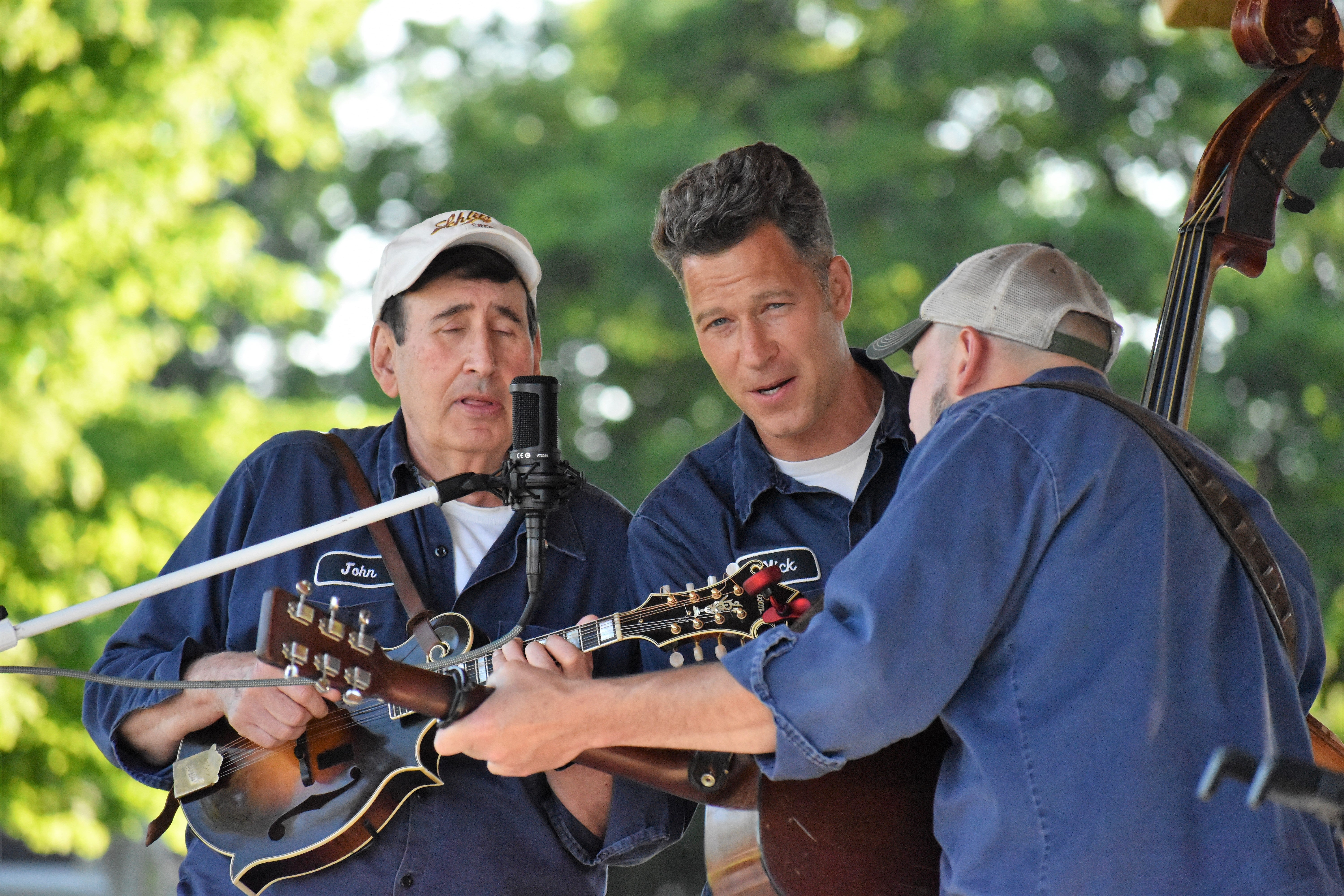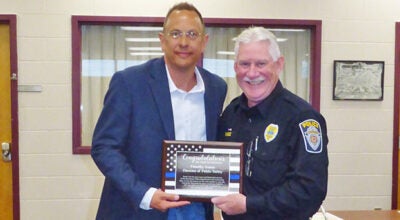America faces ‘interesting times’
Published 10:47 pm Thursday, February 9, 2012
“Life will slowly get better if we choose to not make it worse. But expect a rough 15 to 30 years.”
— Dr. Matt Cripe
Bubblequakes and “Aftershocks.”
America’s woes in times of wrenching global flux have festered for 30 years.
Economists see another 30 to tame a $15 trillion debt.
Uncle Sam spends $3.5 trillion annually, with $2 trillion covered by taxes and $1.5 trillion borrowed.
“If we paid half a trillion a year, with no interest, it’s going to take 30 years to pay off — and that assumes we don’t borrow any more money,” Dowagiac dentist Matthew Cripe warned Rotarians Thursday.
To subtly impress his point at Elks Lodge 889, Cripe relied on an old-fashioned easel, black marker and white art paper rather than a PowerPoint presentation for a program titled “Interesting Times.”
Quoting the book “Aftershock” by economists David and Robert Wiedemer and Cindy Spitzer, Cripe defined bubbles as asset values subjected to temporary booms due to changing investment psychology rather than fundamental economic drivers.
“We really have no other option than to confront our fundamental problems and to make significant changes to government and society,” the authors write.
Cripe said he could not recall a time with more “massive groups of concerned, frustrated citizens motivated to demonstrate with a sense of urgency” across the political spectrum, from the Tea Party on the right to Occupy on the left.
‘We borrowed from ourselves’
A bubble economy grows only to inevitably fall.
“Private debt is higher than it’s ever been,” he said, “but recently surpassed by college debt. Being told they have to go two weeks without a paycheck would devastate most families. Aftershock is when bubbles pop so fast the economy crashes. In the 1930s, in the Depression, nobody had a lot. They made do with what they had and saved. We had no choice but to get into World War II. Government spending went through the roof, but we borrowed from ourselves with war bonds.
“From 1950 to 1980 were pretty good times, but we’ve spiked. There’s going to be a period, according to the authors, where things crash. The whole psychology of our society is going to change from borrow and spend to saving.”
What happened in ’80s?
Cripe said baby boomers (1946-1964 births) came of age and Ronald Reagan became president.
“They are an extremely significant generation by sheer numbers,” he said. “They had the civil rights movement and felt they could change the world. But 10 years later, those born in 1955 are 25 years old and done partying. They want a second home and to take nice vacations. They start borrowing. Reagan comes in off the Carter years of high inflation. He did lower taxes, but he didn’t cut government spending, he increased it. Reagan’s was the first administration to advocate deficit spending. We learned we could live on borrowed money and the world didn’t fall apart. A scary thought.”
Civil War lesson
Cripe is reminded of the “greatest turmoil our country has gone through” in the 1860s Civil War.
“They could have said, ‘Let’s get together, sit down and work this out,’ or they could have a four-year war with one in 10 Americans killed, lots of property destroyed and terrible feelings between North and South. Then, they sat down at a table and moved forward. That’s human nature.
“To get through financial crisis, all of us have to have the idea of living within our means, lower expectations, work when we’re able, take care of our health and help others when we can. Or, we as a society can choose war, anarchy, clinical depression, alcoholism and drug abuse. Then, we’re still going to come back to the (unresolved problems). Psychological change is not going to be easy, but it’s (preferable) to the worst-case scenario.
“At the same time government is going to have to increase taxes and decrease services to pay off the national debt, organizations like Rotary, churches and United Way on a local scale need to replace government programs to help those in need. Life will slowly get better if we choose to not make it worse. But expect a rough 15 to 30 years.
“When I watch shows like ‘Doomsday Preppers’ (on National Geographic Channel), what a shame. They’re getting ammo and practicing escape routes. Instead of talking about ‘The Biggest Loser’ or ‘Dancing with the Stars,’ how about discussing this?
“Open our minds, open our hearts and hold hands like crossing the street in kindergarten.”







